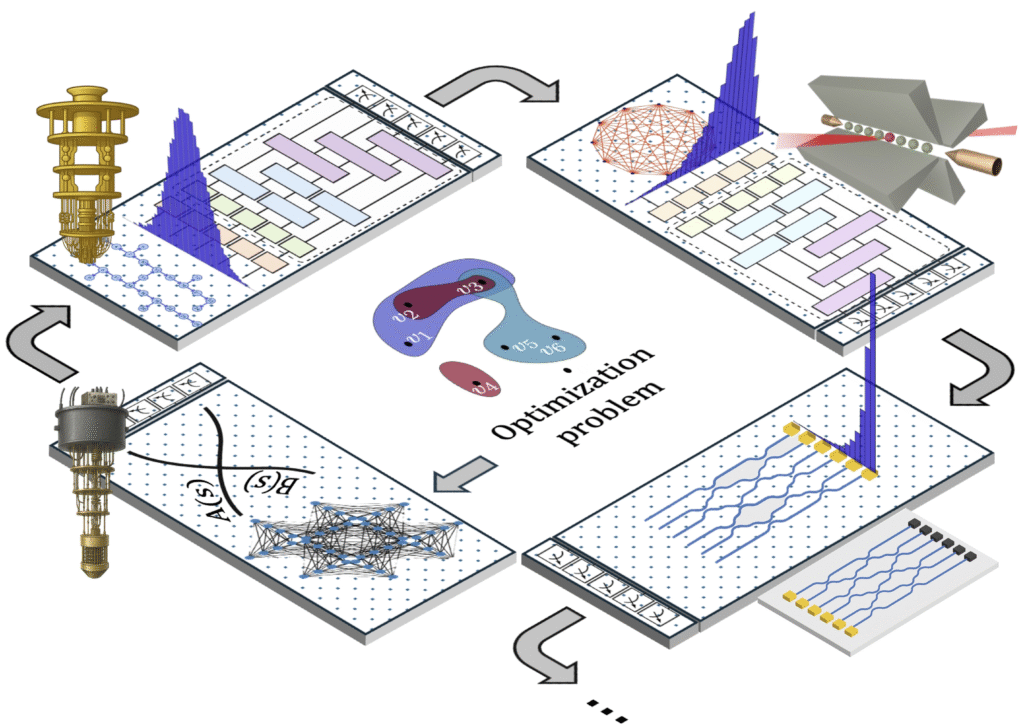Researchers at Kipu Quantum have demonstrated a computational paradigm termed Sequential Quantum Computing (SQC). SQC involves linking different types of quantum processors, including analog and digital hardware, to leverage their individual strengths and address limitations. This approach aims to enhance performance and achieve computational results that may not be attainable by individual systems alone.
Kipu Quantum applied SQC to a combinatorial optimization problem, involving hundreds of three-body terms, adapted for IBM Heron devices up to 156 qubits. The Bias-field digitized counterdiabatic quantum optimization (BF-DCQO) algorithm was utilized in this demonstration. Experiments compared the SQC approach, combining D-Wave and IBM quantum hardware, with standalone methods on each platform. The results indicated that the SQC approach yielded solutions with reductions in required measurements (e.g., 36x for Quantum Annealing and 6x for BF-DCQO in specific instances) and showed an improved average performance with a smaller spread of approximation ratios.
SQC is positioned to address computational challenges faced by evolving quantum hardware by integrating different quantum platforms. This paradigm is expected to have broader applicability beyond optimization. Kipu Quantum plans to expand SQC to domains such as quantum simulation of materials, quantum chemistry, and quantum machine learning. The ability to combine homogeneous and heterogeneous quantum processors aims to advance solution quality and resource utilization, pushing the capabilities of current quantum hardware.
Read the Kipu Quantum blog post here and the arXiv paper here.
July 16, 2025


